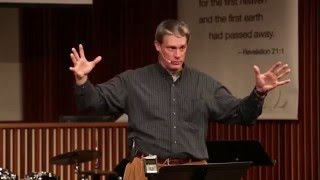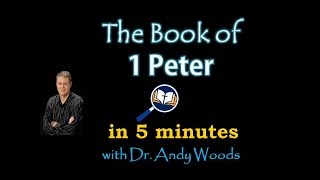Tuesday, 13 January, 2026г.
















Где искать: по сайтам Запорожской области, статьи, видео ролики
пример: покупка автомобиля в Запорожье
When Apostles Misquote the Bible
Did the Hebrew prophets predict Jesus? The short answer is, no. So why did the New Testament writers misquote the Old Testament prophets to make it seem so? Interestingly, it is not because they were just making stuff up. They’re using ancient ‘pop culture references’ to tell a new story... Peter Enns also explains that it is easy for the modern reader to miss just how subversive the New Testament texts were in their 1st century context.
The modern reader expects the Bible to be the ONE book that is truthful and free from ‘made-up stories,’ right? We expect the New Testament writers not to quote the Old Testament prophets out of context, and not to put words in their mouths. But the Apostles and New Testament authors let us down. They quote the prophets completely out of context. And, yes they do make stuff up - important stuff.
In this very informative, 15 minute clip, Peter Enns recounts the day of his own rude awakening to this harsh reality as a graduate student. He says: “For the first time in my life, having gone to churches my whole life, having gone to a very good academic seminary, I had never seen this before... I had two reactions: ‘Oh, crap,’ that was one. The other was... ‘Toto, I don’t think we’re in Kansas anymore...’ This is what our Bible does.”
Rabbinic literature written around the same time as the New Testament, shows that, the great minds in 1st century Judea didn’t propagate new ideas without making use of ancient ‘pop culture’ references. The Apostles lived in a world where, you met God by being creative in engaging the biblical text. They handled scripture like we do movies today. How many old faerie tales were reworked in the blockbusters ‘Shrek’ and ‘Hoodwinked’?
On the journey Enns had to make to learn to read the Bible well, he learnt that sometimes when we are unsettled by the Bible, it’s a signal that the problem is in the expectations we bring to the Bible and the way we stand over the Bible instead of letting it be the Bible. What we expect of it, may be more our own creation than what the Bible is actually doing. We need to let go of what we are trying to force the Bible to be.
“I think about the Bible differently today than I did 10 years ago or twenty years ago or thirty years ago and I’m very happy to be able to do that.” “Watching the Bible behave, continues to shape my thinking about what the Bible is.”
“I want to respect the Bible enough to, as best as I can, let it be what it is and not stand over it.” “This Bible is not one that I can grab and control and hold on to.”
Теги:
Theology Biblical Scholarship Critical Scholarship Exegesis Biblical Exposition Bible Exposition Peter Enns Peter Eric Enns Professor Enns Prof. Enns Professor Peter Enns Prof. Peter Enns Apostles The Apostles Paul The Apostle Paul Paul the Apostle
Похожие видео
Мой аккаунт


 У вашего броузера проблема в совместимости с HTML5
У вашего броузера проблема в совместимости с HTML5


